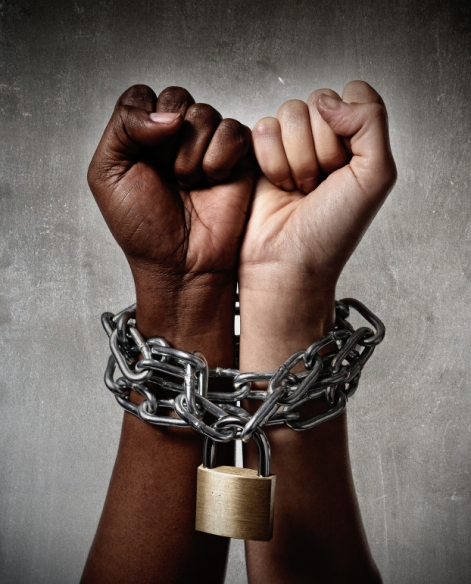Maybe “flunked” is too strong a word, I was the dunce — the poor guy who just didn’t get it and left the anti-racism teachers and the rest of the class shaking their heads. All because I refused to say four magic words that would have redeemed me.
Some of you may be wondering if I’m making this up. I’m not. If you know anything about Unitarian Universalism, which is my religious home, you may understand what this is about. I love UUism, quirks and all. One of its quirks is the tendency to engage in periodic sweeps calling on all UU lay leaders and ministers to endorse one cause with one prescribed set of words to describe it. A current example is the Black Lives Matter movement.
 Make no mistake. I believe that black lives matter, and I’m against racism. But Anti-Racism 101 was a specific training program of the late 1990s that lay leaders and ministers were expected to take. At the time, I was on the board of the Joseph Priestley District of the Unitarian Universalist Association, so I took the course.
Make no mistake. I believe that black lives matter, and I’m against racism. But Anti-Racism 101 was a specific training program of the late 1990s that lay leaders and ministers were expected to take. At the time, I was on the board of the Joseph Priestley District of the Unitarian Universalist Association, so I took the course.
I’ll cop to being a privileged white middle-class male. But here are the four words I refused, and continue to refuse, to say: I benefit from racism.
I’ll admit to having some relative advantages because of racism, but the word “relative” is the key. I believe that racism brings us all down. It is not an issue owned exclusively by people of color. I’m not talking here about supposed bias against whites. I mean that racism damages the entire culture. As Martin Luther King Jr. said: “We may have all come on different ships, but we’re in the same boat now.”
One of my anti-racism classmates was an African-American man living in a mostly white middle-class neighborhood whose son sometimes gets hassled by the police when he comes for a visit. In explaining why I don’t agree that I benefit from racism, I made my case as a small-business person. “Some day I may want to hire your son,” I told the man. “It hurts me as well as him that he has been roughed up by white police officers and may not feel comfortable working for me. Even if he does come work for me, his experiences will make it harder for us to work successfully together. He was damaged by the bias against him more than I was, but I was damaged, too.”
That’s when all the sad head-shaking started.
I did not benefit from the deaths of Trayvon Martin, Eric Garner, Michael Brown, Tamir Rice, Walter Scott, or Freddie Gray. Those killings made the United Sates a worse place for all of its inhabitants to live. I do have plenty of privileges that Eric Garner, for example, didn’t when he was alive. But both of our lives would be better if not for racism.
Copyright 2015 © Mel Harkrader Pine

I would have flunked that class too.
A few months ago I came across Rev Thandeka’s “Why Anti-Racism will Fail” and I thought it was still quite relevant, even though it was written in 1999.
http://www.filmsforaction.org/articles/why-antiracism-will-fail/
LikeLiked by 1 person
Great article, Karen. Thanks so much for the link. Is is indeed still relevant, and it’s helping lead me toward a Part 2 today.
LikeLiked by 1 person
Is the author saying he hasn’t benefited from racism because he gained nothing after Trayvon Martin, Eric Garner, Michael Brown, Tamir Rice, Walter Scott, or Freddie Gray’s death? If so, it appears he completely does not understand the issue at hand. One can’t start there in the timeline of American history to prove they’ve not benefited. We all have a history. I’m assuming this author is at least 20+ yrs old (though if he were 6yrs old it wouldn’t matter), so he was actively a part of American history prior to the killings of the blacks he mentioned. Was the article meant to be satirical?
LikeLike
My world is worse, not better, because of those killings.
LikeLike